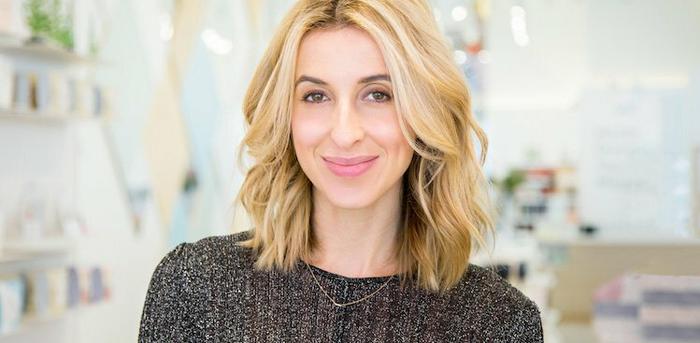
I’m the queen of second opinions. I can’t buy a pair of jeans without sending a mirror selfie to someone else to get more input, I refuse to book a hotel without checking at least three different review sites, and I still struggle to send tricky emails without first running them by someone else on my team.
Because of this, I’ve ended up buying pants that I hate two weeks later, or staying at a hotel that wasn’t my vibe, or writing an email that didn’t really sound like me, all because someone else told me to. So, recently I’ve made it my goal to seek out advice with the goal of making the most educated decision, rather than seek it out to get my decision.
Which is why when I spoke to Katia Beauchamp, the CEO and founder of Birchbox, a subscription service for beauty products, about her ultimate life mantra, I was thrilled to hear she lived by the same philosophy:
My best advice is to seek advice. All the time, you should ask people about their experiences and how they weigh options and pick paths forward. I made the mistake early on of not spending enough time doing this. Why? Because I was busy, for one, and because it invited so many different opinions and ideas—it made my head spin. I’ve since realized that it’s not about bringing someone in to actually get an answer. This is about gathering as much perspective as possible, and it should never stop. It is about learning all the time; it is the only way to speed up the journey of developing an even deeper sense of and instinct for what you are doing. Outside ideas are there for you to consider, to think about, and question whether you want to take pieces of them…it is up to you to use them to shape your vision, beliefs, and drivers.
Many people talk about “information overload” and “decision fatigue.” But like Beauchamp, I choose to believe there’s another side to the coin—receiving options is liberating, with the right mindset.
As she explains, asking for someone else’s advice isn’t about getting the right answer out of them. Rather, it’s about adding perspective to your current situation so you can choose the right answer for you.
So, how can you ensure a second opinion doesn’t cloud your judgement? Consider these two things before reaching out:
- What part of your decision are you unwavering on?
- What part of your decision are you unsure about?
Going back to the jeans example, I may be certain that I want them in a dark wash, but unsure whether I should go with ripped or classic. So, when I ask for a second opinion, I can ask them what they think about the style to steer them toward helping me make that decision.
The same thing goes for career advice. People may throw ideas out there for the kind of job you should have, the kind of path you should take, the kind of responsibilities you should own, or the kinds of decisions you should make. You can let it overwhelm you, or you can pick and choose what you want to factor in, and let everything else fall to the wayside.
It seems silly, but it’s truly that simple. Once you see others’ advice as something you can take rather than something you have to take, the pressures off, and you can make decisions that align with your values.
As Beauchamp says, this will only help you develop stronger internal instincts—and ultimately a better sense of who you are.